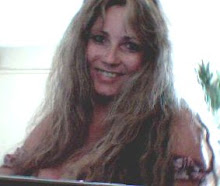 Wild Dreams Wednesday is pre-empted this week as we continue with Part 3 of my week-long series on making good book trailers...
Wild Dreams Wednesday is pre-empted this week as we continue with Part 3 of my week-long series on making good book trailers...
Last time we talked about the 1-2-3 Rule of Good Book Trailers. Today I want to talk about Key Points, and why you need this to develop a Stand Out Concept.
The Trailer Key Point Don't let terms like Key Point and Concept confuse you. These are simple blocks you build your trailer from. Concept may sound a lot like the PURPOSE of your trailer, but it's not. We assume the purpose is to sell the title in question, which factors into decisions like the length, style, and format of your video.
Don't let terms like Key Point and Concept confuse you. These are simple blocks you build your trailer from. Concept may sound a lot like the PURPOSE of your trailer, but it's not. We assume the purpose is to sell the title in question, which factors into decisions like the length, style, and format of your video.
The CONCEPT of your trailer is, simply put, your overall script. Which, for many trailers, is where authors try to synopsize their entire book. Since we learned not to do this in the 1-2-3 Rule, a Stand Out script will revolve around a smaller factor. That's where the KEY POINT comes in, which is what I call the aspect of the story you want to emphasize.
How do you find the Key Point for your trailer? Typically in one of three ways:
1. Start with your jazzy one-liner blurbs. This (these) are generally your best bet, as they are already made, quick, grabby ideas that hooks the reader and sets up interest for your book. If you have a good one, build your trailer around it.
2. Reread your favorite Stand Out scene for inspiration. No one-liner yet? What scene/sentence/dialogue grabbed you the most during writing? Reread it and see if you can build an interesting trailer around that concept. You can also ask your critique group or test readers this question, and see what the consensus has to say.
3. Figure It Out As You Go. Basically, this means surfing around for random images and music that seems to fit your book, play around with them in your movie making program, and see what springs to mind. My least favorite approach, as it tends to be longer and more frustrating. Still, I've used this trick on a few trailers when I couldn't decide on A Key Point.
Once you've got your Key Point, you can expand that into your script Concept.  "Wait! I've got a lot of Key Points I want to use!"
"Wait! I've got a lot of Key Points I want to use!"
Especially with cross-genre or complicated plots, you may well find several real juicy Key Points or tag lines to build from. Happy dilemma! But stick with one or two for your trailer, as more than this is tough to get across in the average 60 second format.
If you want, you can make more than one trailer that emphasizes a different aspect--for instance, targeting a different reading audience for a cross-genre book. But keep your Key Points clean and simple, or the next step will be a real bear.
"I've tried all this and still can't figure out a Key Point. What Should I Do?"
There's one other trick I like to use, and that's MUSIC. Often I start with a trailer key point, then write a script and storyboard the concept, then I choose music and imagery that fits the mood. However, there are occasions when I have to work backwards, and sometimes when I don't know where to start, I hit the music archives. If I know the genre of the book (and I'd better!) that gives me some sense of the mood of music I want, so I'll sit and listen to clips until one inspires me. I'll see a key point appear on stage, and BANG! Next thing I know, I've got my script concept. So play around with the order of things a bit if you're having trouble. You may find your muse hiding somewhere you didn't expect!
Tomorrow I will cover scripting/storyboarding a concept based on the 1-2-3 Rule.
1 day ago






2 comments:
If I ever have the good fortune to get another book published, I will DEFINITELY keep your Key Points in mind rather than trying to tell the whole story...
yes this blog is very useful
keep it on
Post a Comment